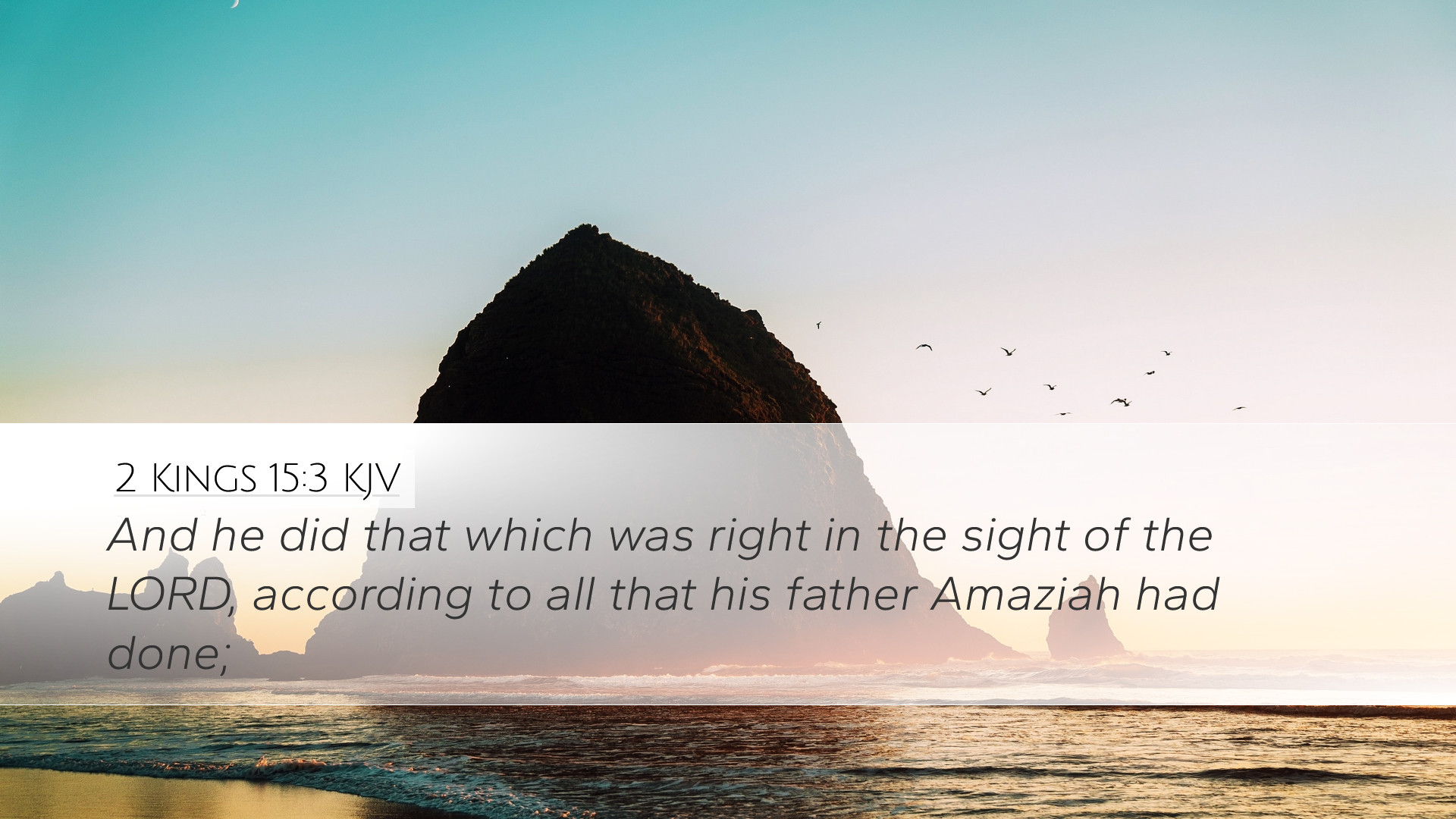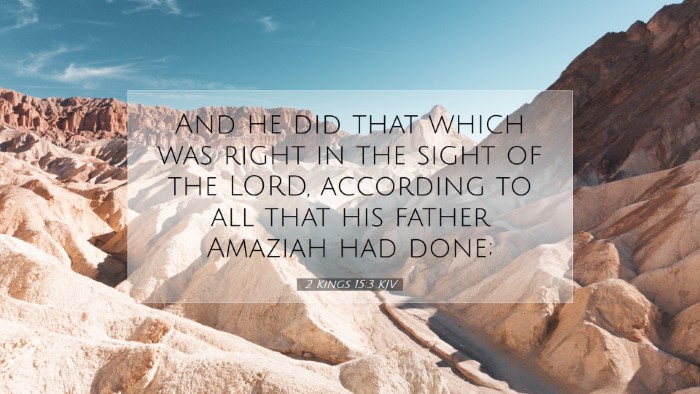Old Testament
Genesis Exodus Leviticus Numbers Deuteronomy Joshua Judges Ruth 1 Samuel 2 Samuel 1 Kings 2 Kings 1 Chronicles 2 Chronicles Ezra Nehemiah Esther Job Psalms Proverbs Ecclesiastes Song of Solomon Isaiah Jeremiah Lamentations Ezekiel Daniel Hosea Joel Amos Obadiah Jonah Micah Nahum Habakkuk Zephaniah Haggai Zechariah MalachiVerse
2 Kings 15:1 2 Kings 15:2 2 Kings 15:3 2 Kings 15:4 2 Kings 15:5 2 Kings 15:6 2 Kings 15:7 2 Kings 15:8 2 Kings 15:9 2 Kings 15:10 2 Kings 15:11 2 Kings 15:12 2 Kings 15:13 2 Kings 15:14 2 Kings 15:15 2 Kings 15:16 2 Kings 15:17 2 Kings 15:18 2 Kings 15:19 2 Kings 15:20 2 Kings 15:21 2 Kings 15:22 2 Kings 15:23 2 Kings 15:24 2 Kings 15:25 2 Kings 15:26 2 Kings 15:27 2 Kings 15:28 2 Kings 15:29 2 Kings 15:30 2 Kings 15:31 2 Kings 15:32 2 Kings 15:33 2 Kings 15:34 2 Kings 15:35 2 Kings 15:36 2 Kings 15:37 2 Kings 15:38

